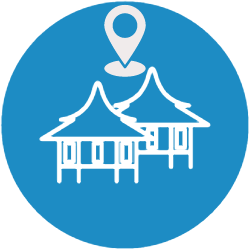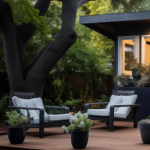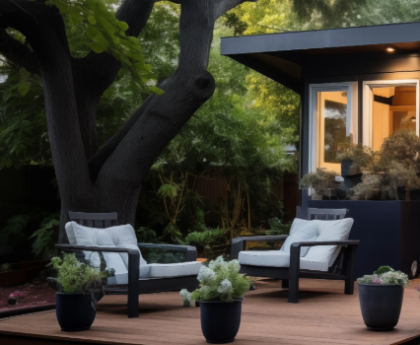Looking to answer La Jollans’ questions about accessory dwelling units, the La Jolla Town Council held a forum during its June 13 meeting about recent changes to housing development rules in the city of San Diego and how regulations in the coastal zone are unique.
The forum, part of a year’s worth of meeting topics suggested by community members, featured city Development Services Department Assistant Director Gary Geiler as its keynote speaker.
Town Council President Treger Strasberg said ADUs — also known as backyard apartments and “granny flats” — come up often as a topic of discussion and questions.
“There are a lot of changes that have happened over the years [pertaining to ADUs],” Geiler said. “The city has had to adopt rules that the state has passed on to us … so since 2018 we have been continuously changing regulations as part of the land development code update.”
Currently, the city has rules for ADUs and junior ADUs.
An ADU is an attached or a detached dwelling that is 1,200 square feet or less, provides complete living facilities for one or more people — including sleeping, eating, cooking and sanitation — and is on a lot with a proposed or an existing single-family or multiple-family dwelling unit.
Geiler said garages and other currently non-habitable spaces on properties that already contain a dwelling unit can be converted to ADUs.

A junior ADU is a unit between 150 and 500 square feet within an existing or a proposed dwelling unit or an attached garage on a single-dwelling lot. A junior ADU may include separate sanitation facilities such as a bathroom or may share them with the larger unit, but the junior ADU must have a kitchen.
On a typical lot in San Diego, one ADU and one junior ADU may be built, but regulations pertaining to floor area ratio (the size of a building in relation to its lot) and bulk and scale still must be followed, Geiler said.
However, in certain cases, there are exceptions that would allow one ADU to exceed FAR limits.
Among the changes to regulations based on the early development of these properties are a requirement that junior ADUs be attached to an existing structure, Geiler said. There also are setback requirements for two-story ADUs, changes to disabled-accessibility requirements, allowances for market-rate ADUs if a below-market-rate ADU also is built, and more.
Additional stipulations are in place in the coastal zone, which includes La Jolla.
“Before, everything in the coastal zone that was new construction required a coastal development permit,” Geiler said. “We worked with the California Coastal Commission for the past five or six years to develop a process to make it an administrative coastal development permit, where the findings have to be made for that type of development. So as [the permit applications] come in, staff reviews it … and has the community planning groups make certain findings.”
Unlike the rest of the city, the coastal zone has a beach parking impact zone that necessitates rules for parking. Dedicated parking for residents of an ADU is required in the beach impact zone, Geiler said.
Additionally, sea-level rise and other environmental factors must be taken into account.
Citywide, one of the “big concerns” with the construction of ADUs has been parking, Geiler said.
“Over the years, there have been exemptions for parking if you are in certain areas, so regulations over time have mandated local jurisdictions to really take a look at this,” he said. “We require no [specified or additional] parking for ADUs [outside the beach parking impact zone]. Yes, it is an impact and a concern, but the need for housing was the [bigger] concern at the City Council.”
Though some have expressed worries about ADUs being used as short-term rentals, “the purpose of this program is to build housing,” Geiler said. “Real housing.”
The next La Jolla Town Council meeting will be a membership appreciation event at 6 p.m. Thursday, July 11, at the La Jolla Recreation Center, 615 Prospect St. Learn more at lajollatowncouncil.org. ♦



